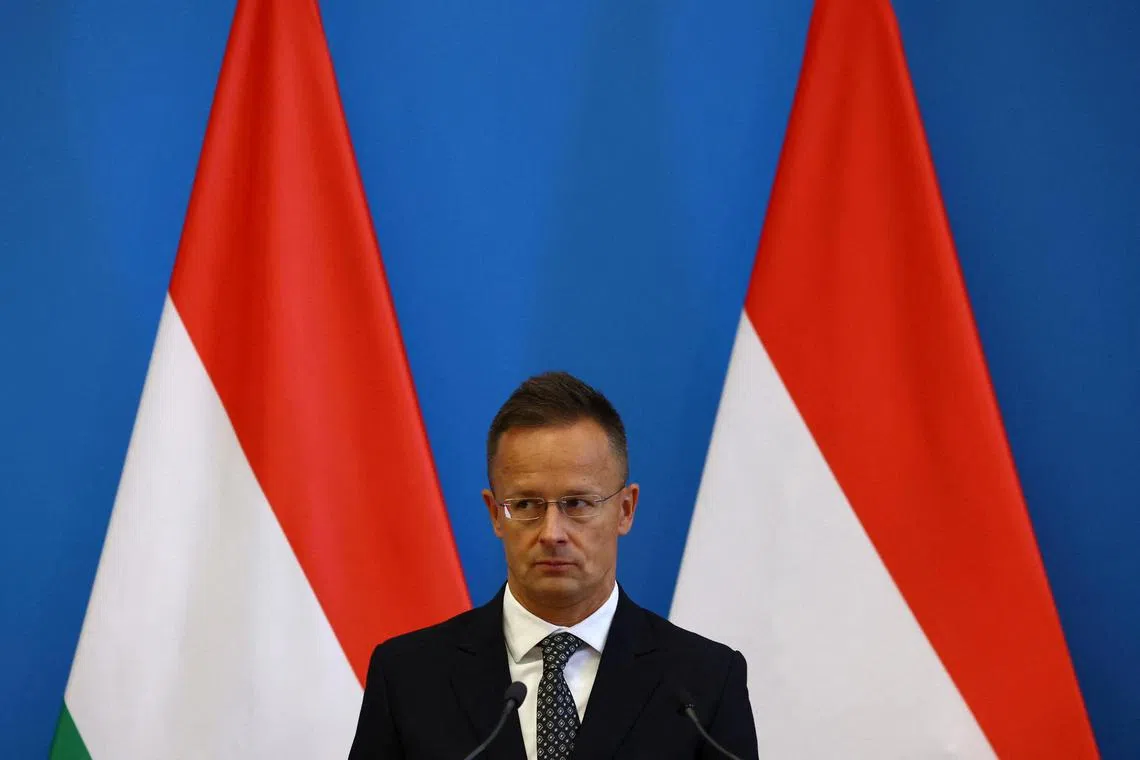Hungary, dependant on Russian gas, signs 10-year deal with Britain’s Shell
Sign up now: Get ST's newsletters delivered to your inbox

Hungarian Foreign Minister Peter Szijjarto said the new supplies from Shell were not meant to replace Russian gas.
PHOTO: REUTERS
- Hungary signed a 10-year deal with Shell for 2 billion cubic metres of gas, starting in 2026.
- The deal extends a prior agreement, but Hungary insists it won't replace Russian gas supplies.
- Hungary aims to add new gas sources, maintaining its reliance on Russian Gazprom through 2036.
AI generated
BUDAPEST - Hungary, which relies heavily on Moscow for its gas, on Sept 9 signed a new supply contract with British energy giant Shell, though it insisted it was not diversifying away from Russia.
The central European nation has remained the Kremlin’s closest partner in the EU despite its invasion of Ukraine, and has resisted calls to reduce its dependency on Russia to meet its energy needs.
The Hungarian government has opposed a Brussels plan to end imports of Russian fossil fuels, and secured an exemption from sanctions on oil deliveries via pipelines.
The 10-year contract deal between Shell and Hungary’s state electricity company MVM calls for a total of two billion cubic metres of gas deliveries starting from 2026, Foreign Minister Peter Szijjarto said.
“This is a long-term contract with the longest duration so far and the highest volume so far with a Western partner,” he told reporters, on the margins of a gas conference in Milan.
The agreement extends a previous deal with Shell for supplying 250 million cubic metres of natural gas annually between 2021 and 2027.
But Mr Szijjarto said the new supplies were not meant to replace Russian gas.
“Diversification for us does not mean giving up already existing sources and routes, on the contrary... new sources and new routes should be added to the existing ones” he said.
Hungary has a 15-year supply contract with Russia’s Gazprom for 4.5 billion cubic metres a year through 2036, which has been supplemented with additional supply agreements in recent years.
Most of Hungary’s gas imports come from Russia under the Black Sea in the TurkStream pipeline and then through its extension, the Balkan Stream network via Bulgaria and Serbia. AFP


